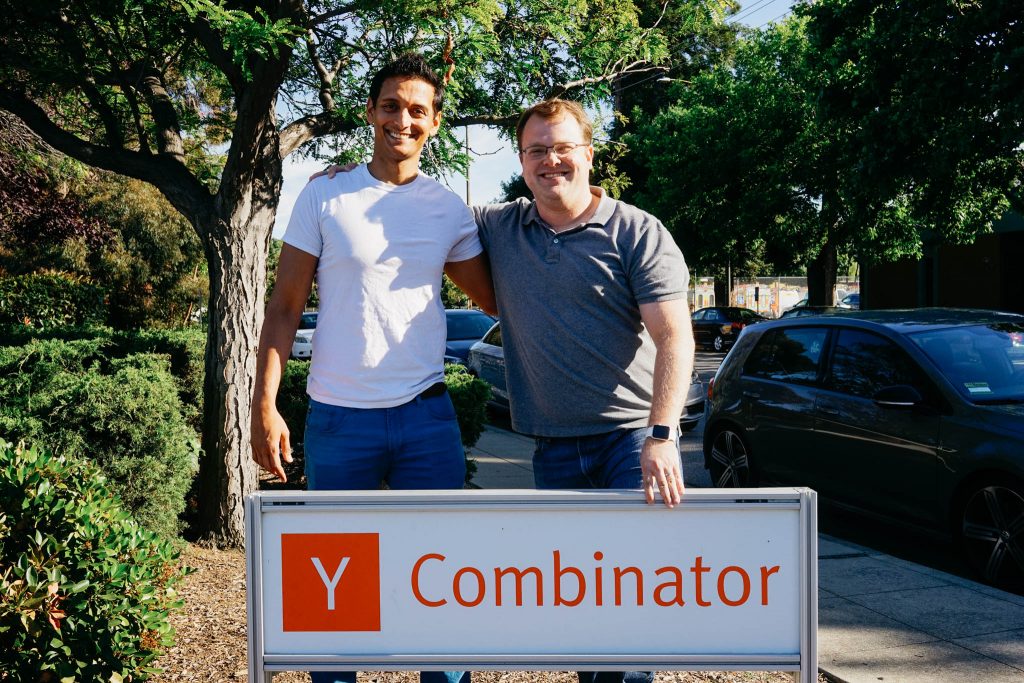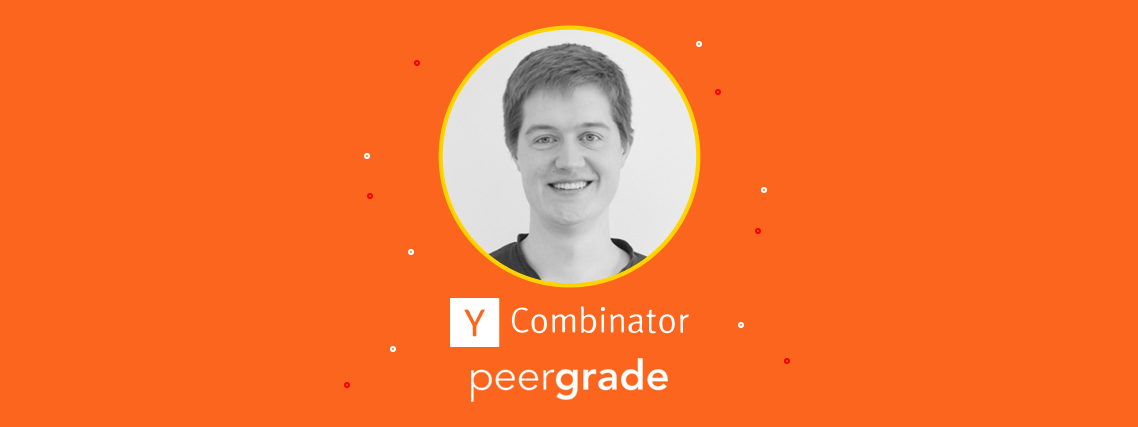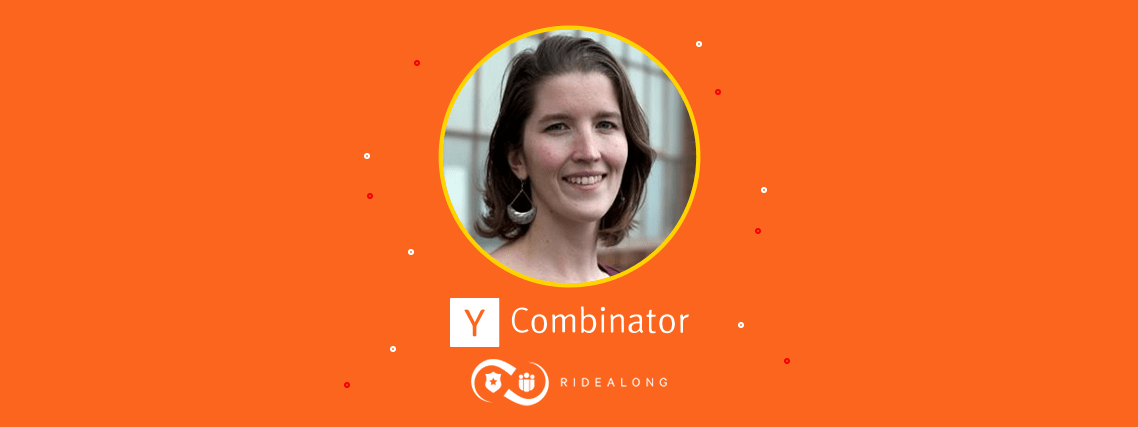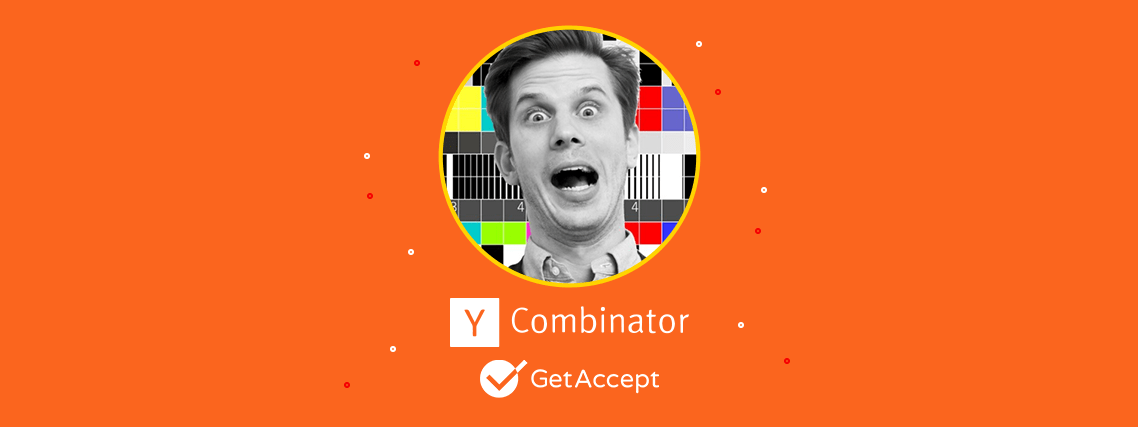Kyle Killion's story of getting Suiteness into Y Combinator along with tips on how to apply
- 1.From Wolf of Wall Street to a "Made Man" in Silicon Valley
- 2.How LendEDU Raised the Most Valuable Seed Round Imaginable with Y Combinator
- 3.Kyle Killion's story of getting Suiteness into Y Combinator along with tips on how to apply
- 4.Rotem Yakir shares Guggy’s story of evolving from "just another Israeli Startup" to a YC startup
- 5.The True Story of How Orion Willow Got Lendsnap Accepted Into Y Combinator
- 6.Nicky Goulimis shares Nova Credit's Path to Y Combinator Acceptance and Beyond
- 7.Katherine Nammacher Chronicles RideAlong’s Journey Into Y Combinator
- 8.The Story of How a Sofa Startup Got Into Y Combinator with Just a Pitch Deck
- 9.The story of how two college friends joined forces to disrupt an industry with Iris Automation
- 10.How 4 Swedes got their SaaS accepted into Y Combinator while still at $0 MRR
- 11.The story of when 8 x Co-Founders flew from Denmark to San Francisco for Y Combinator
- 12.Ryan Chan the founder of UpKeep shares his Y Combinator Journey
- 13.Pedro Goes of InEvent shares his Y Combinator Journey
- 14.Itay Forer of Cleanly shares his Y Combinator Journey
- 15.How to get into Y Combinator according to the founders that did get in
- 16.What It Was Like Doing Y Combinator a Second Time
Kyle Killion is the co-founder of @ Suiteness, the only free-to-join hotel booking website that offers rooms that connect to suites for half the price of a typical two-bedroom suite for groups of 4 or more. Read his Y Combinator story here.
Why did you decide to apply to YC?
Hacker News has long been one of my go-to sites, it’s essential for keeping up with startup news while working in tech in the Bay Area. So I’ve regularly been exposed to Paul’s writings and the amazing accomplishments of YC startups. So when I started Suiteness, YC was naturally at the top of my list, so I applied.
We actually applied a lot of times. I applied twice just as a single founder very early on in the process.
I got rejected the first few times over the years. A couple of times a year I would go through the application process and eventually we were accepted, and now we’re a seven-year-old company.
When you finally got accepted, how many co-founders did you have? Were they all technical?
We had three co-founders at that point, but we just did the video and put down info for two of us. We decided that was the right thing to do at the time, based on reading the rule specifically that said, “If somebody doesn’t own 10%, you shouldn’t put them on the application.”
One of our co-founders, Stephen Caudill, is purely technical. I’m a mix of product and technical. Our third co-founder, Robbie Bhatal, is focused on the business side of things.
And did you have traction already before you applied?
We interviewed twice and we had a bit of traction for the first one, but not enough. We had a lot more traction before the second interview, and that’s when we were accepted. By the time we got accepted, we were well on our way. Traction made all the difference.
And was that traction revenue related?
There’s definitely a difference between just a little bit of money coming in the door, and real significant growth. The first time we applied, we had some bookings but hadn’t been able to show that kind of growth yet. It wasn’t until we had real growth that we actually got accepted.
Significant growth is a “you know it when you have it type of thing.”
How much time and effort did you guys put into the application?
We spent at least two or three hours on each one, so a pretty extensive amount of time. The video required a lot of prep work, mostly just coordinating schedules and making sure you have everybody in the room.
The video itself took another couple hours of work too because we would record a bunch of them and then decide which one we liked best.
How much did you take to prepare for the interview?
The first time through we didn’t do that much prep. We were doing a lot of that sort of preparation already by talking to investors on a regular basis. That’s the number one way to prepare, just be out there pitching what you’re doing to angel investors.
But there’s not much we could have done on our first interview…
We got really tripped up because one of the three interviewers was very focused on one particular thing–specifically, a one-time payment we had to make to connect to the service in order to get data from hotels.
He asked if we could get hotels to cover the cost, and they were really focused on this one-time bill that we had to pay that was around $25,000.
We told them, “No, we just pay this one time and we’ll never have to pay it again.”
We never could have imagined that anyone would care.
The second interview was a little bit different. We had done a pre-interview with Michael Seibel over Skype, and then when it came time to do the actual in-person interview it was more focused on making sure we could really do what we said.
What was the #1 thing that helped you nail the interview the second time around?
The second time we interviewed we had just hit a critical mass of recommendations, and that helped us more than anything else. That’s really a huge signal they look for.
If you’re parsing through 10,000 applications, and only 3,000 of them have more than one recommendation, and only 300 have more than three recommendations, that’s a strong signal for them.
They’re always looking for ways to make vetting easier because really diving all the way into the questions is only a small part of it. A big part of the consideration process is looking at the other signals besides just what the founder has written in the application.
And when you say recommendations, you mean recommendations from other alumni or partners?
There’s a place for anyone that’s in the YC Network, and the form has got a lot easier in the past three years.
It used to be hard to find people, and we’d have to find out their Hacker News username. But they simplified it and added search capabilities so you can have people go in and add a recommendation.
So that’s the best thing to do: find anyone that’s been in a YC company or in the YC Network so they can put in recommendations.
And it’s not about just getting one recommendation, because that’s not enough.
A lot of people get one, probably even the majority get at least one, so it’s worth having more than one.
What’s the biggest benefit that your company had by joining Y Combinator?
It’s definitely the network, just being able to post on Bookface or email any other YC founder and get advice or help, or just to listen to the problems we face.
The access to partners is great, but that’s actually secondary to the founder community which is by far the most important part.
If you ever have a question, or you’re doing something and you feel like, “Shouldn’t this be easier? Has somebody already done this?” Then you can just ask! And people will respond with, “Yeah! Just do it like this!”
Do you have any final tips for founders thinking of applying to Y Combinator?
Just keep doing it!
My guess is that they also look for people that apply throughout the growth of their company as they’re learning, and they want to see you learn and fail and make mistakes and find what works.
So they like to see you come back again and again.
Do it early and often, and even though it does take a couple of hours, it’s a good time to sit back and take a larger view of things than you do normally.
So just keep doing, never be discouraged.
They’re not rejecting you because they don’t like you, it’s just not the right moment.




